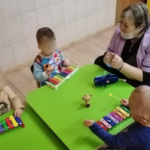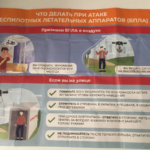About our claims to Ukraine and Ukrainians

Recently, we were very surprised by the post of the respected Lenar Miftahnyky. The author claims that Ukraine found itself in the current situation not by chance and also bears its part of the responsibility for what happened to it, and it has no moral right to demand from others more than they can offer. Further, the author analyzes the mistakes of Ukrainians and concludes that it is just as harmful for the Tatars to fight for Ukraine as it is for Russia.
Let’s leave out of the question that posts of like this are exactly what the Tatars “need” on the eve of the possible consideration in Verkhovna Rada of the draft resolution “On the recognition of the state sovereignty and independence of Tatarstan.”
The proposed approach of the author is surprising: we were offended, everyone around us owes us. In this connection, I want to consider each statement of Lenar purely from the point of view of Realpolitik, and not emotions. Therefore.
1. Ukrainians ruled the Russian Empire on a par with Russians.
👉🏻 Undoubtedly. This is so, these are the shameful pages of the colonial past. Among Ukrainians, there are many opportunistic mankurts, in particular, in various positions in the government of the Russian Federation. Al-hamdu li-llah, it’s not like that with us.
2. 1991-1994, with the help of Russian troops, Armenia occupied the territory of Azerbaijan. Azerbaijan was waiting for help. Ukraine pretended that it’s not its business.
👉🏻 Ukraine did no more and no less than all other post-Soviet countries – it did not recognize the annexation of Azerbaijani territories. Were there any examples of active intervention, at least from Azerbaijan neighbors in the Caspian basin?
3. 1992, armed conflict in Transnistria. Russian troops provided assistance to the separatists and this led to the loss of part of Moldovan territory. Ukraine provided assistance not to Moldova, but to Russia. Ukraine provided Russia not only with a transport corridor, but also began issuing its passports to residents of Transnistria.
👉🏻 Ukraine really did not help Moldova. It is a fact. Although it did not recognize the annexation of Moldovan territories.
4. 1994-2000, the whole world followed the events in Chechnya with a shudder. Did at least one truck with humanitarian aid come from Ukraine to Chechnya?
👉🏻 It came, and not just one. There are newsreels from CRI on this subject. Moreover, Ukrainians are one of the few peoples who were able to form a volunteer unit to participate in military action on the side of the CRI. In reality, this unit was too small, and could not influence the course of events in any way. However, this does not detract from the fact that among Ukrainian volunteers there are two fighters awarded the Order of “Qoman Turpal”, which is awarded solely for valor shown on the battlefields. Here we can add the illegal cure of wounded fighters in hiding in Ukraine, the evacuation of the widow of the president of the CRI, Alla Dudayeva, exactly to Ukraine. Tell me please, how many units were sent by other peoples, in particular Muslim, to the war in the CRI? How many knights of “Qoman Turpal” there are among Tatars, Bashkirs, Chuvashs? It is surprising to hear such claims against Ukrainians from Tatars, and not from Chechens.
5. 2008, Russian troops entered Georgia. And again, no one heard the position of Ukraine.
👉🏻 The Presidents of Ukraine, Poland, Lithuania, Latvia and Estonia arrived in Tbilisi in August 2008. Tell me please, maybe we missed something and there were examples of other, more effective support for Georgia from other states? By the way, Ukrainians, again, are one of the few peoples who fought in the so-called the Abkhazian war on the side of Georgia, there are those among them who died in Georgia and were awarded the highest awards of Georgia.
Here I would like to touch on two topics:
🔹 What can we offer?
🔹 What should we do?
The first point.
Do we really think that Ukraine expects an uprising from us? Do we really believe that Ukraine’s victories depend somehow on the Tatar national movement and our desire for independence? One can get the impression that Ukrainians need an independent Tatarstan more than Tatars. Is this really what we want to prove to Ukrainians?
The second point. The struggle for independence is an irrational desire. This is a dream, for the realization of which the people are ready to give all their strength, all of themselves. This is the only way. Stepan Bandera, OUN and UPA are not about rational calculation. This is about the struggle of a handful of fanatics, who in the end all die in battles, at the hands of killers, or die in Soviet prisons and hard labor. The same applies to forest brothers in the Baltic States. The same applies to the Polish Home Army and many others.
Ukrainian nationalists throughout their history have been searching for an opportunity where to fight against Russia, where to get combat experience for their fighters: from Ukrainian units in Spain and Finland to the Chechen Republic of Ichkeria. This is the path to independence, the path blazed by a small group of fanatics boundlessly devoted to their dream of Ukrainian state.
Only the strong people are respected, fighters are respected. They are helped. Yes, the guys with balls are helped, and not those who have excellent writers and a glorious history of 500 years ago. Ukrainians are helped not because they are Christians, Slavs, on the border with NATO – but because they resisted fiercely.
If Ukraine had surrendered or lost quickly this winter, there would have been no military and technical assistance. Neither her Christianity nor Slavic roots would have helped. Excuse me, but, again, Ukrainians were saved by their balls of steel and the character of warriors – all other help, very important help, is a consequence of these strong-willed qualities.
If we, Tatars, accept the philosophy “do not demand the impossible from us”, we will never get independence.
Never. This is the philosophy of defeatists.
An interesting example is Belarus. The real anti-Lukashenko force, according to many, is not Svetlana Tikhanovskaya, legally elected president, but the Belarusian volunteer regiment named after Kastus Kalinouskiy as part of the Armed Forces of Ukraine. The bet in the anti-dictatorial struggle against the country leader Lukashenko is made precisely on Belarusian volunteers of the Armed Forces of Ukraine.
Why is Ukraine the first to adopt the resolution specifically on the CRI? For the same reasons.


Leave a Reply